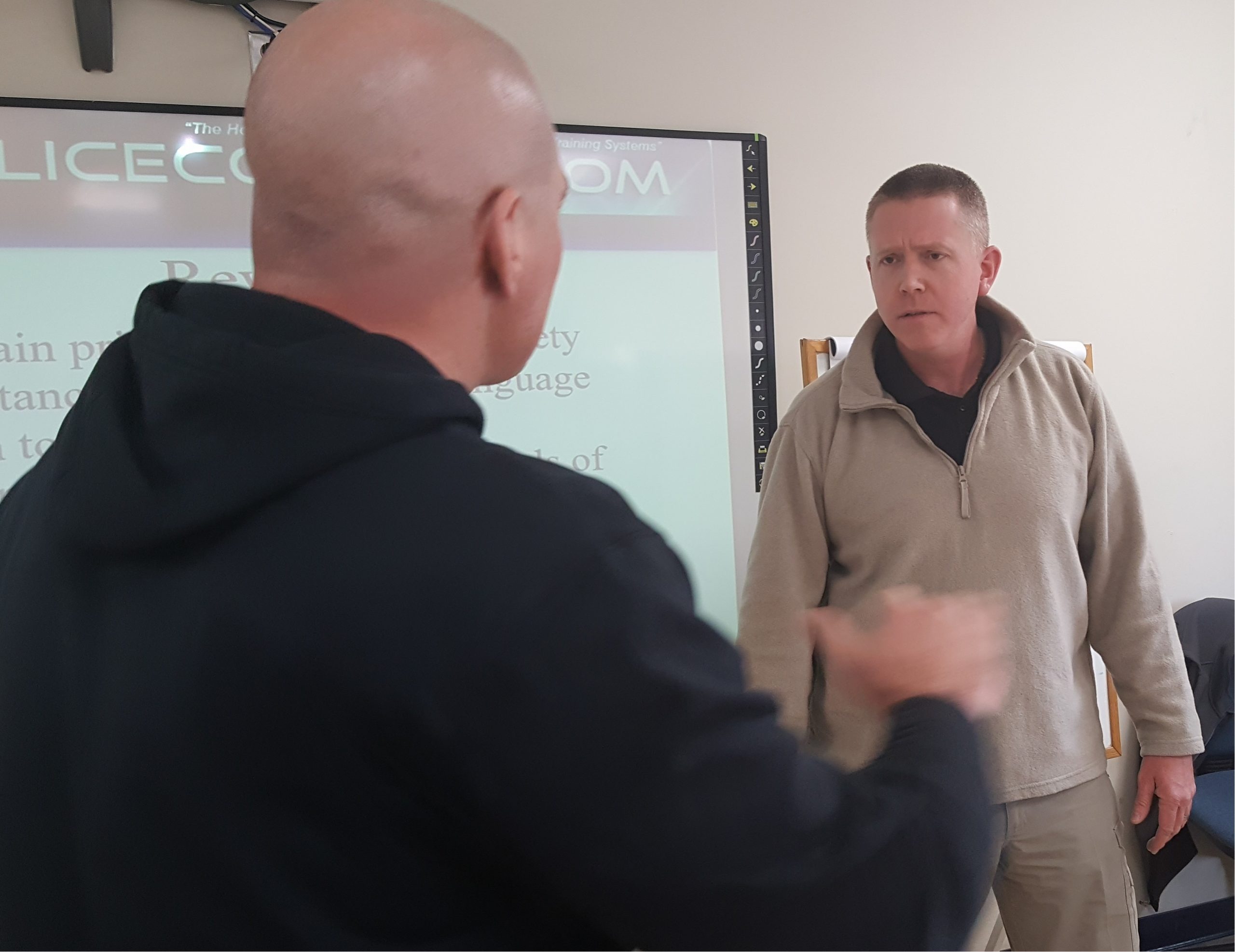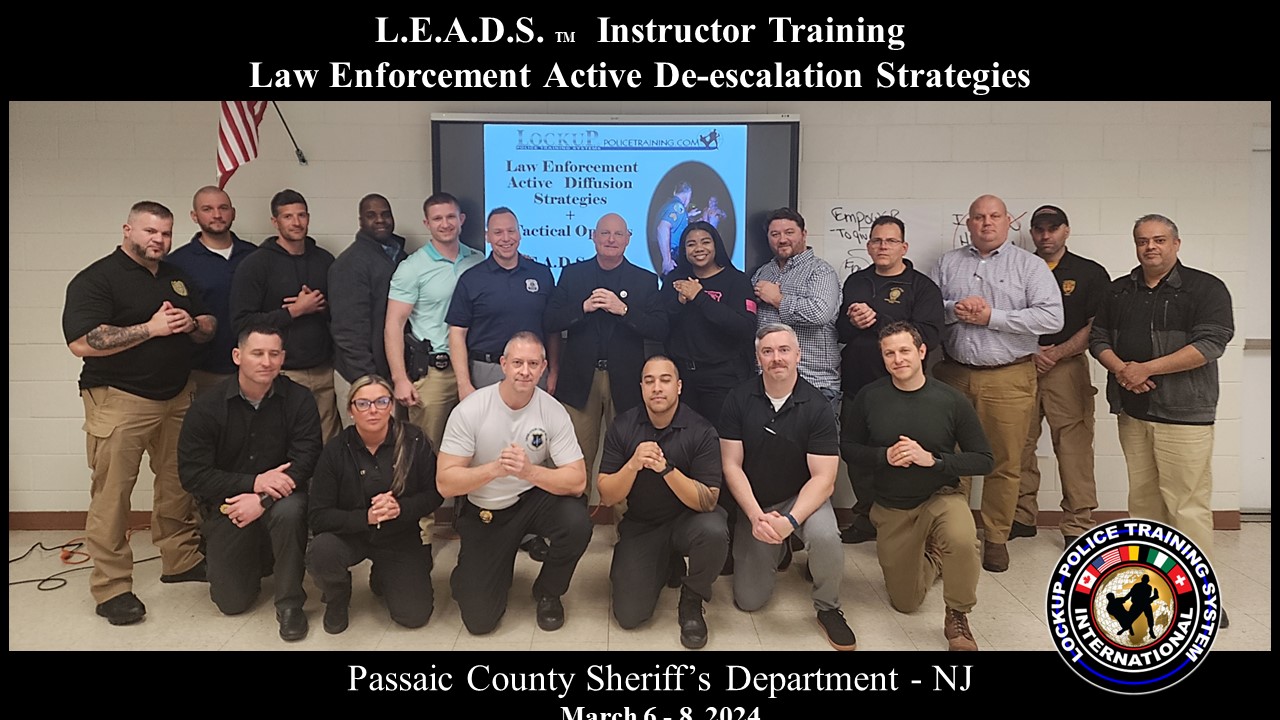Springfield MA Police Department Hosting Controlling Larger Combatants Overcoming Size Differences for Female Enforcers May…

TX -LEADS Law Enforcement Active Diffusion Strategies -Train the Trainer
Southlake Police Department, Texas
L.E.A.D.S. + T – Law Enforcement
Active Diffusion Strategies Plus Tactical Options
Three Day Instructor Course
Nov. 1 – 3, 2017
0800 to 1630 Daily
Lt. Dillon developed the L.E.A.D.S. ™ Plus T – Law Enforcement Active Diffusion Strategies and Tactical Options One-Day Program in 2007, receiving national recognition. It has been presented to officers in the states of FL, CT, RI, MA, ND, MN, MO, MI, SD, CO, AK, CA, AZ, WY and NM. The L.E.A.D.S. ™ curriculum has been reviewed and approved by the United States Department of Justice.
Through lectures, demonstrations, role play, and practical scenario applications, this course will instruct students and develop instructors in the L.E.A.D.S. ™ Plus T – Law Enforcement Active Diffusion Strategies and Tactical Options. The course is classroom based to educate instructors in effective communications skills, de-escalation techniques as well as combat confrontation avoidance training. The course teaches how to recognize aggressive behaviors and keep them from escalating. Students learn Active Diffusion Strategies that can avoid or resolve negative interactions by employing effective de-escalation methods. This course also discusses tactical responses to use when diffusion tactics are inappropriate or ineffective and teaches distraction techniques that promote the success of tactical applications. We utilize reality based training, lectures, scenario exercises, group break out sessions and demonstrations to maximize learning and retention.
Course Objectives
- Identify indicators of hostility through body language;
- Understand the principles of risk management for officer safety;
- Learn and understand the value of customer service in law enforcement;
- Learn how to turn negative communication into positive;
- Identify professional benefits of respect;
- Learn effective verbal de-escalation strategies;
- Understand physiological changes during aggression;
- Learn to use cognitive limitations for active diffusion;
- Learn methods to redirect thought process through positive direction;
- Learn the importance of professional posturing;
- Identity different communication styles and appropriate response tactics;
- Learn methods of motivational interviewing skills;
- Pre-tactical planning – avoid the provocation accusations;
- Learn methods of distraction to obtain tactical advantages;
- Learn communication and physical strategies to de-escalate situations;
- Discuss application of the 30 Guiding principles PERF Recommendations;
- Communicate & respond to special populations; (mental illness, autism, disabilities),
- And More!
“Since 2012, LEADS has been an 8-hour staple of the St Paul Police Department’s 16 week Recruit Academy. Lt. Kevin Dillon and his systems are critical to addressing the concerns of communities and the demands placed on Law Enforcement in the current culture.”
Edward L. Lemon -Commander St. Paul P.DHost Contact: Sgt. Mike Dunn, 817.980.2583
Registration or Billing Questions: Tammy LaBonte, 860.882.3601
$ 525.00 Per Officer
LEADS Instructor Training hosted by the CT State Police Feb 6 -8, 2017
- Allow me to implement to both recruit an in-service training. Works hand in hand with our current techniques.
- We need to convey this to all our recruits. I wish I had this at the beginning of my career.
- Took points all three days that will assist me in developing new curriculum for supervisor training that is being talked about.
- I will be able to disseminate strategies and tactical options to recruit classes and in-service block training.
- Will incorporate into recruit also in service especially in this scenario based training.
- I am already looking for new ideas to better to improve my career in interactions with community.
- I will use it to help shooters understand what they’re doing as well as why, and it will help me in the production of drills and curriculum.
- Preparing recruits for the road with the latest cognitive skills to avoid unethical use of force.
- I will implement these techniques in the next recruit class. Today’s environment requires an understanding of these concepts.
- I am in patrol now; I will be able to apply it immediately and daily.
- At the academy level, teaching, showing recruits the importance and value of these techniques.
- This training will benefit me in teaching, and better explaining the importance of sound communication skills from a patrol perspective.
- Improve in providing insight to our officers and give them additional tools to solve situation.
- I now have a better understanding of how my actions can trigger responses from people I contact.


